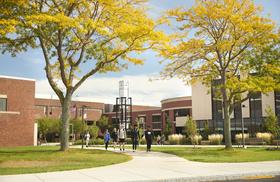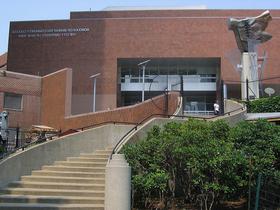Many students opt to attend community college over traditional four-year schools because it is generally cheaper. But there are always hidden fees and extra costs to consider as an incoming student. This week on social media, various topics related to community college costs have been trending, including Detroit’s action to make community college free and San Francisco’s move to use taxes to pay for community college. There was also an interesting post by NPR regarding rising hunger and homelessness as college costs increase.
San Francisco Becomes First U.S. City to Offer Tuition-Free Community College
On Saturday, February 11, the Twitter handle @CNN (CNN News) posted a link to a news article regarding San Francisco’s decision to offer free community college to all residents starting in the fall of 2017. San Francisco will be the first U.S. city to make this choice, and it has many residents in uproar, considering that the tuition costs will be paid for by property taxes equaling more than $5 million. CNN news writer Katie Lobosco reports that this tax is called the “real estate transfer tax,” and it was increased in 2016 for both commercial and residential properties, an increase that voters approved in November of 2016.

The real estate transfer tax begins at 2.25% and goes as high as 3% for properties with an estimated worth exceeding $25 million. The tax is expected to bring in an average of $45 million annually. Though much of the money will go toward community college tuition, it goes into the city’s general fund, so it can also be used to provide senior support services and affordable housing. The move for free tuition is expected to affect nearly 30,000 students attending City College of San Francisco. However, Chancellor Susan Lamb notes that the school can accept up to 85,000 students. The move for free tuition is expected to encourage more students to enroll.
Tuition-free programs exist in other states, but San Francisco’s program is much more progressive. The city has committed $5.4 million per year for the next two years, including a one-time stipend of $500,000 to the college to help deal with the influx of new students. This change will cover the $46 per credit cost for all residents (regardless of income), and students are not required to be recent high school graduates or full-time students. Each student must pay the $17 per semester fee and the cost of books, housing, and other living expenses. However, what sets San Francisco’s program apart is that low-income students can receive additional aid to pay these other costs.
Detroit Makes a Move to Offer Free Community College to High School Graduates
On Monday, February 13, the Twitter handle @bombaeshae posted a link to a CNN news article covering Detroit’s move to make community college accessible for students. This move happened in March of 2016, but it is likely resurfacing due to San Francisco’s release of a similar program. Known as the Detroit Promise Zone program, this program allows any graduating high school senior to attend one of Detroit’s five community colleges without paying a dime for tuition. The funds for this program come from a private scholarship foundation, but next year, in 2018, property taxes will start to pay for some of the programs, and these taxes have already been earmarked.

The Detroit Promise Zone program currently only applies to Detroit’s community colleges. Still, Mayor Mike Duggan hopes that it will eventually be expanded to cover the cost of four-year programs at Detroit state schools. To be eligible for the program, students must have completed their junior and senior years at a Detroit public, private, or charter school. The program is available for all eligible students, regardless of income, but students must fill out the FAFSA federal financial aid form. The program will pick up the rest of the tab after any federal or state grants and scholarships are applied.
In the program's first year, 500 students were expected to take advantage and enroll in a Detroit community college for the fall 2016 semester. The scholarship amount will vary for each student, but the average cost is $680. The Detroit Promise Zone program is part of a citywide effort to improve the future of Detroit, making it a more desirable city for individuals and families. Penny Bailer, Chairwoman of the program, hopes it will benefit the city’s future leaders by making their education available at no cost.
Hunger and Homelessness on the Rise with Increases in College Costs
In contrast to the good news about tuition-free community college in some cities, the Twitter handle @NPR posted on February 8 about something shocking. Though several cities across the United States have begun offering tuition-free community college benefits to residents, costs continue to rise for students who don’t live in these cities. In an article published by NPR, writer Kirk Carapezza tells the story of a first-year student at Bunker Hill Community College who was homeless when she enrolled. After spending time at an unsafe homeless shelter in Boston, this student added her name to a six-month waiting list at a slightly safer shelter in the hopes that she could live and study safely while attending classes at Bunker Hill.

This story may be shocking to some, as many assume that community college is always the most affordable option. But that doesn’t mean many people who enroll in community college are starting at the bottom and trying to work their way up. Researchers at the University of Wisconsin surveyed over 4,000 undergraduate students attending community colleges around the country and reported that 20% of students were hungry and that 13% of students were homeless. Many of these students work while they take classes, and many borrow money in the form of loans. But for some, these things still leave them so short that they go without necessities like food and shelter.
Attending college, in whatever shape or form, is something that countless high school graduates across the country take for granted. With federal student loan programs and scholarships, many students can afford a college education, often with the help of their families. However, for some students, even low-cost community colleges are too expensive. Hopefully, in the coming years, programs like those San Francisco and Detroit have begun to offer will become more commonplace, allowing more young adults to lift themselves out of the cycle of poverty to become all that they are capable of being.
Questions? Contact us on Facebook. @communitycollegereview














